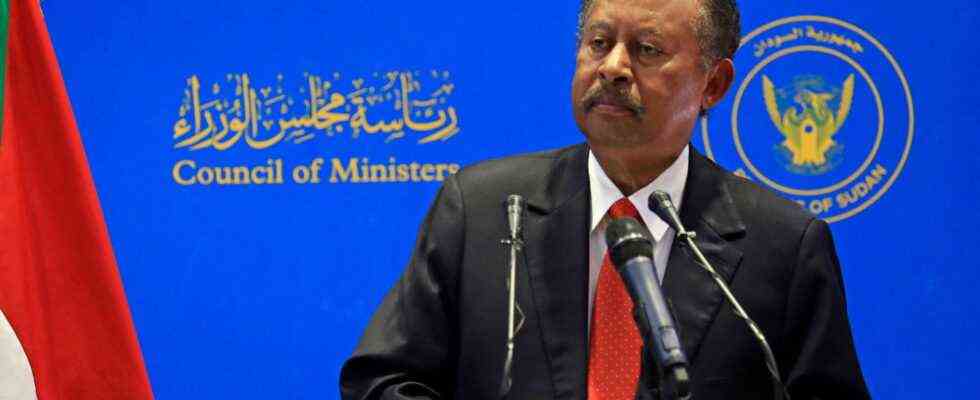As of: 25.10.2021 8:51 a.m.
In Sudan, the military carried out a coup and put Prime Minister Hamdok under house arrest. Several ministers had previously been arrested by soldiers. It is the second attempted coup within a few weeks.
Another military coup took place in Sudan. The head of government, Abdallah Hamdok, was arrested and placed under house arrest. After he refused to support the coup in a public statement, he was taken to an undisclosed location, according to official information. At least five other leading government officials have also been arrested, according to local media.
The Sudan’s Ministry of Information confirmed the arrest of Hamdok and several ministers by the military. Where they are being held is unclear, according to a message on the ministry’s official Facebook page. The army has switched off Internet connections and blocked bridges, the ministry said. Traditional, patriotic songs were played on state television.
There have been protests against the government for a long time.
Image: REUTERS
USA are concerned
The US special envoy for the region, Jeffrey Feltman, expressed “deeply concerned” about the latest developments. A violent seizure of power is contrary to the country’s constitution and calls into question the issue of further US aid.
The trade union federation SPA, which in 2019 also led the protests against the long-term ruler Omar al-Bashir, who was subsequently deposed, called on people in the country to take to the streets to prevent the military from taking power. “We call on the masses to occupy the streets, to block them with barricades, to go on a general labor strike and not to cooperate with the coup plotters and to do civil disobedience,” said a statement by the SPA.
In the past few weeks tensions between the military and the civilian part of the government had increased. There was already a coup attempt by military officers in September, but it failed.
Protests have been going on for weeks
In Sudan, after the fall of Bashir, a so-called Sovereign Council took over government, in which the military and civilians share power. Since then, the country has been in a fragile transition phase, which is expected to end with the establishment of a civilian government in 2023. High inflation, economic difficulties and deep political divisions exacerbate the situation.
In the past few months, the incumbent transitional government had launched a series of economic reforms in order to qualify for debt relief from the International Monetary Fund (IMF). In the course of the reforms, among other things, state subsidies for fuel were cut. Other measures also led to a massive loss of confidence in the transitional government. There have been protests in the east of the country for weeks. Only last Thursday tens of thousands demonstrated in several cities for the establishment of a civilian government.

